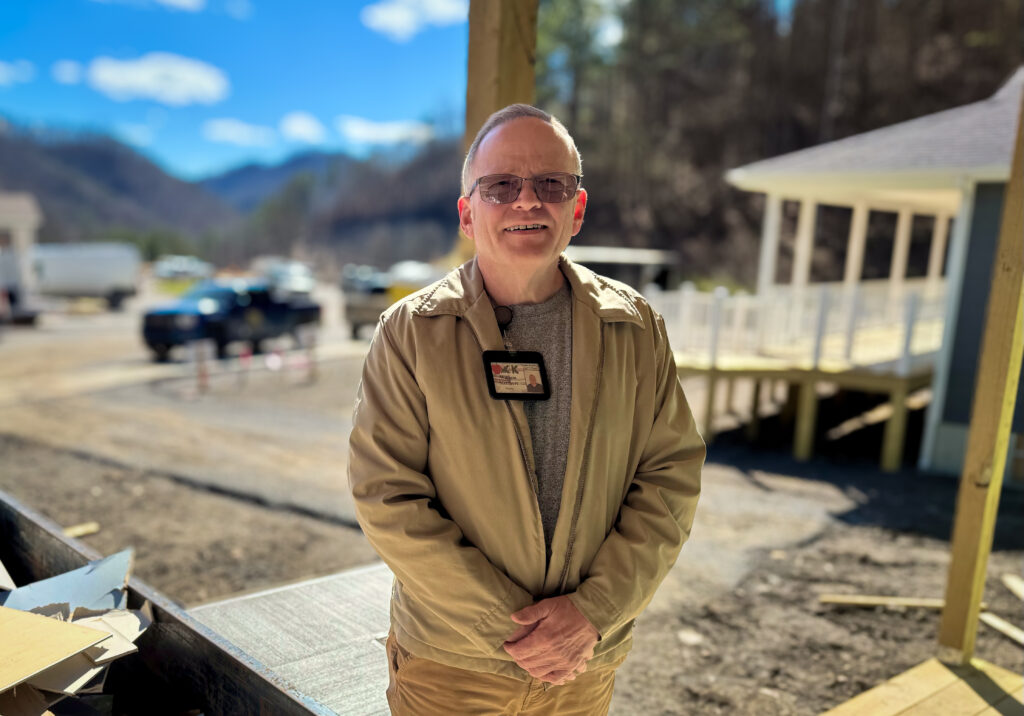
Bill Sizemore’s 100-year-old house filled with 18 feet of water in the July 2022 Eastern Kentucky floods. The foundation completely washed away and the structure was demolished just days later. Finding a rental took months. Bill wrestled with his next steps, not knowing what he would be able to afford. HOMES, Inc., made owning a new home possible.
“When the staff took me out to see the poured foundation on Christmas Eve, it was one of the happiest days of my life,” Bill said. “Since then, they have made slow, steady progress.”
HOMES, Inc., accessed a range of funding sources to make this dream a reality. Bill brought his FEMA buyout funds and down payment assistance from the federal Homeowner Disaster Reconstruction fund. The home will be in the Thompson Branch Higher Ground subdivision, a former coal strip mine purchased and developed by Team Kentucky to be flood-safe housing for survivors. Thanks to philanthropic money through HOMES, Inc., Bill received a ten-year forgivable loan. Those invaluable flexible dollars have proven crucial in getting him and others nearing retirement back into a home they can affford.
In addition, Habitat for Humanity is funding advanced home efficiencies and solar electric panels for Thompson Branch residences with a goal of net zero energy use. Eastern Kentucky residents typically have high electricity bills – $400-$500 a month is not uncommon – due to inefficient housing. HOMES, Inc.’s, skilled solar installation teams provide a strong return on investment for both small businesses and homeowners. Bill’s anticipated electric bill will be less than $25 a month.
In Letcher County, the flood disaster brought focused attention on the need for low- and moderate-income housing and concentrated effort on solutions. Bill is grateful for the investment and looks forward to moving into his new community in just a couple of weeks.


